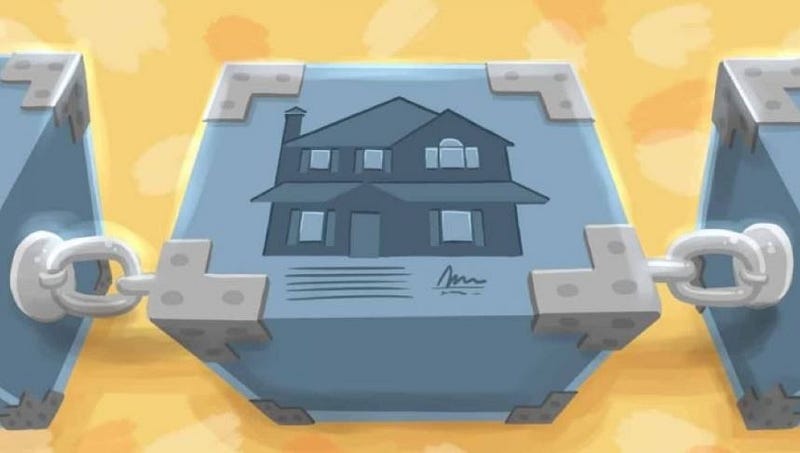
It is only a matter of time before blockchain tech infiltrates all industrial and commercial sectors. The commercial real estate market is not really an exception, and has started witnessing a change in the operations due to incorporation of technologies such as Smart Contracts. A blockchain is a secure, distributed and decentralized ledger system that records data in a chronological manner and avoids data tampering. Due to these characteristics, blockchains have the potential to stir things up in the Commercial Retail Estate (CRE) sector and revolutionize how things work currently.

What does Blockchain bring on to the table for the CRE sector?
Before one delves into how Blockchain could impact the CRE, let us briefly explain what Smart Contracts are:
- A smart contract or a crypto-contract is a set of rules defined in the form of a computer program/code that has a direct control over the flow of cryptoassets or assets between parties.
- Besides defining and asserting the rules and penalties around an agreement like a traditional contract, a smart contract can also automatically ensure that these obligations are adhered to. With a simple model where information is used as an input, rules in the contract assign a value to the input, and actions are performed as stated in the contractual clauses.
- Smart Contracts ensure fair and transparent operations. Since these contracts rely on the much talked about blockchain technology for recording and storing data, it essentially uses the technology’s security and immutability to avoid fraud and malpractice in these transactions.
Smart Contracts can hence regulate the process of cash flow and bring in benefits such as:
- Reduce the time required for reconciling transactions involved in payment of rents and property expenses.
- Complete transparency in the process of approving property-related transactions.
- Cost reduction in the processes of accounting, compliance and property management thus, ensuring a smoother and hassle-free transaction.
Blockchain brings in liquidity, more transparency and process efficiency
Smart contracts would not only automate the process of leasing property sites but also bring in a smoother and faster contract management process that expedites the processes involved in finalizing deals. It is believed by most industry players that blockchain would facilitate creation, authentication and smoother audit processes of contracts in real-time, across geographies and without the need of a third party!
Since smart contracts have regulations and instructions designed and incorporated into the transaction, it ensures that the payment can only be completed when all the conditions are met and in a process compliant with all the rules stated. This helps one in establishing complete transparency in the process and hence, reduces the probability of transactional disputes by creating confidence among all parties.
How Blockchain eliminates the need for middlemen in CRE

Blockchain Technology will also lend additional liquidity to the CRE sector. It will simplify the exchange of assets between parties that have registered all their investments on the ledger. It will allow people to multiply cash flow more efficiently, identify prices of assets effectively and thus, create more liquidity for new issuers on the block. Besides storing information in a secure manner, blockchain technology ensures that no data is lost by storing historical information. It can potentially shorten the traditionally cumbersome process of recording and exchanging titles, all of this with the added advantage of transparency built into the process!
Blockchain Technology can improve many other processes in the CRE sector
Blockchain Technology can improve cumbersome process of searching for property. Since there is no standardized process of listing properties on multiple listing services (MLS), the search process seems to be inefficient and tiring. However, the blockchain-based MLS will ensure that all information about the property-listing is recorded accurately. The distributed ledger system can expedite the ID-verification and financial evaluation process with digital identification. This can alleviate challenges of collecting and verifying traditional physical identity proofs. Not only would that fastrack some of the prerequisite formalities like underwriting, financial evaluation and obtaining a mortgage commitment but also help establish trust between both parties participating in a transaction.
Blockchain technology can eliminate the need of middlemen, agents and brokers in the real estate operations by decentralizing all information. This would make the process of finding property listings more comfortable and efficient. Incorporating the blockchain ledger system in real estate could reduce the extra commission costs and the hassle involved in making transactions and investments, especially in the Commercial Real Estate Sector.
Check out the Unocoin blog to know how blockchain has entered the insurance and banking space!
Also Read:
https://blog.unocoin.com/insurance-industry-and-use-of-blockchain-c935b7affe41



